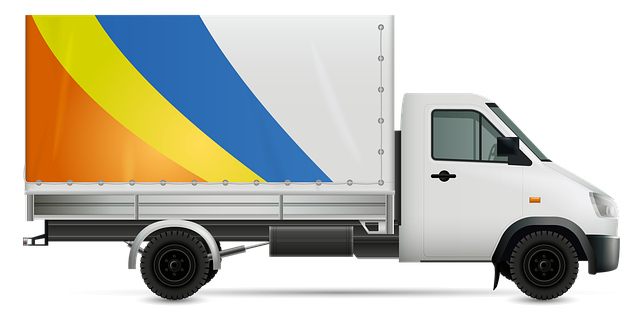Looking to register your car in California? This comprehensive guide breaks down the process step-by-step. From understanding essential requirements, gathering vital documents, and verifying your Vehicle Identification Number (VIN) using a reliable VIN verifier, to submitting applications and fees at the DMV—we’ve got you covered. Ensure a smooth registration experience and hit the California roads with confidence!
- Understand California Car Registration Requirements
- Gather Necessary Documents for Car Registration
- Check Vehicle Identification Number (VIN) Accuracy
- Submit Application and Fees to DMV
- Receive Your California Vehicle Registration Documents
Understand California Car Registration Requirements

Before registering your car in California, it’s crucial to understand the state’s specific requirements. The process involves several key steps and documents, ensuring your vehicle complies with safety and environmental standards. One essential aspect is verifying the Vehicle Identification Number (VIN) through a trusted method like a mobile VIN inspection or verification service, which checks for any discrepancies or theft reports. This step is vital to protecting both you and the state from potential fraud.
California requires accurate and up-to-date information for all registered vehicles. This includes proper documentation, such as proof of ownership, valid insurance, and completed forms. Additionally, ensure your vehicle meets emission standards through a smog test or other relevant inspections. By adhering to these requirements, you’ll seamlessly navigate the car registration process, making it easier to keep your vehicle legal and on the road.
Gather Necessary Documents for Car Registration

Before you begin the registration process, ensure you have all the required documents ready. This includes your vehicle’s registration certificate from the previous state, a valid driver’s license, proof of insurance, and a completed California Vehicle Registration Application form. One crucial document to have is the Vehicle Identification Number (VIN) verifier, which can be obtained through the California Department of Motor Vehicles (DMV). The VIN is a unique code that identifies your vehicle, making it essential for registration.
Additionally, consider conducting a mobile VIN verification or inspection to ensure the vehicle’s authenticity and history. This step involves using a specialized tool or service to cross-check the VIN against various databases, providing you with valuable information about the car’s past, including any accidents or outstanding issues. Having these documents prepared will streamline the registration process and help avoid potential delays.
Check Vehicle Identification Number (VIN) Accuracy

Before initiating the registration process for your car in California, it’s crucial to ensure the accuracy of your Vehicle Identification Number (VIN). This unique 17-character code is a vital component of your vehicle’s history and identity. A simple yet effective step is to verify the VIN using a reliable vin verifier. Many online tools and mobile apps offer mobile vin inspection, allowing you to cross-check the number with official databases. This is essential as even a slight discrepancy could delay or complicate the registration process.
Accurate VIN information ensures that you’re providing correct details about your vehicle, which is critical for California’s Department of Motor Vehicles (DMV). A vin inspection helps in identifying potential issues related to ownership history, recalls, or accidents—all of which can impact the registration process. By taking a few moments to double-check this number, you can streamline the registration and ensure your vehicle’s records are error-free.
Submit Application and Fees to DMV

Once you have gathered all necessary documents and information, it’s time to submit your application and fees to the California Department of Motor Vehicles (DMV). This crucial step involves filling out the appropriate forms, providing proof of insurance, and submitting a valid registration fee. The process can be streamlined with the help of a mobile vin verification service, ensuring that your vehicle’s unique Vehicle Identification Number (VIN) is accurately recorded and verified.
When submitting your application, make sure to include any additional requirements for your specific situation, such as proof of ownership or a title transfer. Using a mobile vin inspection tool can facilitate this process by quickly cross-referencing your VIN with official records, saving you time and effort. Remember to keep all original documents in a safe place for future reference, as the DMV may request them during the registration process.
Receive Your California Vehicle Registration Documents

After submitting your application, you’ll need to receive your California Vehicle Registration documents. These will be sent to you by mail within a few days. Before you can use your vehicle on public roads, it’s crucial to have these documents in hand. They include important information about your car’s registration status and details that are verified through a VIN (Vehicle Identification Number) check, often conducted with a mobile vin inspection or a vin verifier.
Ensure that all the information on the documents is accurate and matches the specifications of your vehicle. Any discrepancies should be reported to the DMV immediately. Having correct documentation is not just a legal requirement; it also ensures a smooth driving experience in California’s bustling landscape.
Registering a car in California involves understanding specific requirements, gathering essential documents, and ensuring accurate vehicle information. By checking your Vehicle Identification Number (VIN) using a reliable VIN verifier, you can mitigate errors. Submitting the application with the California Department of Motor Vehicles (DMV) along with the necessary fees completes the process. Once approved, you’ll receive your official California vehicle registration documents, marking a successful registration journey.
